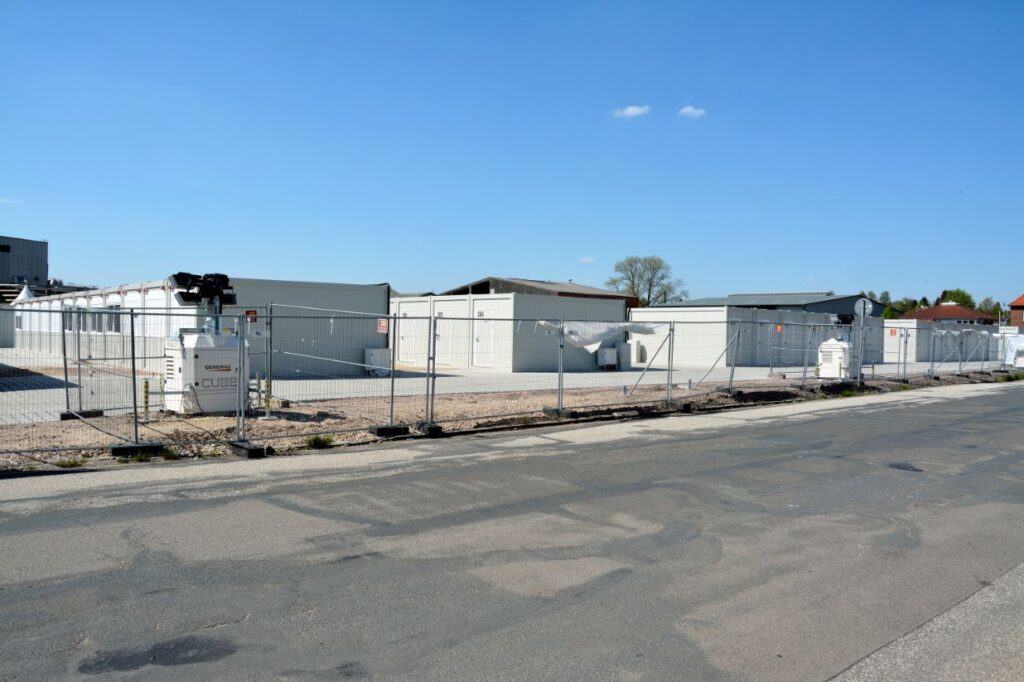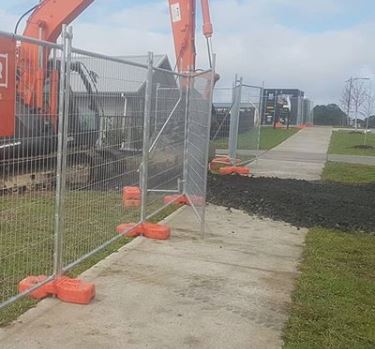
A portable or temporary fence is ideal for short-term purposes because it’s easy to configure, transport, and remove. Construction sites require portable fencing for safety, erosion control, tree or property protection, crowd control, and many different reasons. No matter what type it may be, a portable fence can help deter animals, guide people and organize your project.
When setting up a construction site, your main priority is workplace safety and security.
However, choosing the right type of safety fence for construction can be challenging. Determine whether you require a safety fence and select the right types of temporary construction fence for various needs on the worksite. Three of the more commonly used fence is construction netting fence, orange safety fence and plastic fence.
There are several types of fences that can be used for various construction projects. Selecting the proper safety fence for construction offers a barrier against unauthorized entry and security threats. Temporary fences can withstand unfavorable weather conditions.
Why You Need A Portable Fence For Your Construction Site
Building a temporary fence is an effective way to secure your construction site. It will not only ensure the safety of your workers but also the passersby. A well-secured construction site will have a lower risk of accidents and injuries.
One of the benefits of building site fence is that it can be easily moved from one location to another. This is ideal for construction sites that are constantly changing locations. You can also use it to secure different areas of the construction site at different times.
Another benefit of using a portable fence is that it can be easily customized to fit your specific needs. There are various types and sizes of portable fences available, so you can choose the one that best suits your construction site.
Finally, construction temp fencing is a cost-effective way to secure your construction site. It is much cheaper than permanent fencing, and it can be used over again for future projects.
Uses of Temporary Fencing
Some of the benefits of using a portable fence are theft prevention, managing accessibility, crowd control, and security. You do not need to excavate or make permanent changes to the construction site when installing portable temporary fencing. Restaurants can use them to create outdoor sitting areas and they can be used to guard swimming pools, decks, and patios. Construction companies, however, need a portable fence to prevent the site from vandalism and theft.
Perimeter Safety Fence for Construction
Almost all construction sites will require the use of temporary construction fences around the perimeter. Protect against public or criminal access to the site by installing a perimeter security fence that is at least six feet high.
Protection Against Hazards and Falls
Identify any workplace hazards including holes and stairways, which if left unprotected can lead to OSHA’s No. 2 construction hazard—falls. Provide a barrier around these hazards by installing a temporary construction fence.

Restraint systems, harnesses, guardrails, safety nets, and other safety devices can be used with security fencing to prevent falling risks. The temporary construction fence can easily be removed as these hazards are resolved during construction and completion of the project.
Temporary fencing can be reused for future construction jobs, which is a cost-effective benefit of temporary construction site fencing.
Control Traffic Flow with Construction Safety Fence
Excessively loud, oversized machinery is a standard compliment on most construction sites. Use a safety fence for construction to maintain traffic safety on your worksite. Traffic control is also important to handle employees and deliveries. Fencing can be used to create work zones, footpaths, and temporary roads. Based on your worksite needs, you might also need to include barriers within your traffic control plan. These barriers protect against unwanted entry, both on foot and by vehicle.
Types Of Fences That Can Be Used For Various Construction Projects
The type of construction fencing you need for your fence project will depend on the job site and the purpose of the fence itself. If you need a temporary partition to protect your workers, for example, a chain link or bamboo fence would work well. If you’re looking for something more permanent, however, wood or vinyl fence panels might be a better option. And if you need a fence that will keep wildlife out, an electric fence may be your best bet.
Benefits of Temporary Fencing
Simple to Use
Temporary fencing is sturdy and user-friendly and has a wide range of uses.
Versatile
A portable fence can be reconfigured and moved easily as your needs for fencing change. It can withstand harsh weather conditions and can be removed, carried, and stored when not in use. This makes it perfect for both emergency situations and scheduled events.
Cost Effective
Permanent fencing can be expensive and inconvenient to install and remove. You can add or remove temporary fencing as the need changes. It is inexpensive, easy to relocate and install.
The fencing can be chain link panels, privacy screening, safety, silt, snow fence or deer fence depending on the location and application.
Purchase Temporary Construction Fence in New Jersey
Temporary fencing provides a versatile and cost-effective solution for managing construction site materials, and reducing worksite waste – a significant challenge in the construction industry. Enhance your construction company’s profitability by minimizing material wastage. A temporary construction fence is an excellent choice for handling perimeter and traffic control needs for your business.
Learn how to install temporary fencing to ensure proper usage and compliance. Acquiring a fence permit is crucial before setting up your proposed fence. Various types of construction site fences are available to suit different requirements, such as chain link fences, which are popular for their durability and versatility.
In addition to chain link fences, other options like barbed wire can be used to enhance security measures on-site. Regardless of whether you need to secure the rear yard or any other area within your construction site, temporary fencing offers a practical and efficient solution for managing your space.

contact us for fence for construction site Fence in New Jersey
Frequently Asked Questions
Q: Are there regulated construction site fencing requirements?
A: Yes, there are often temporary fencing regulations. The specific requirements vary by state, but generally speaking, a construction site must be enclosed by a fence or other barrier that prevents unauthorized entry. In addition, the fence must be marked with signage indicating that the site is a construction zone and that entry is restricted. Here are some NJ construction site fence requirements to consider.

